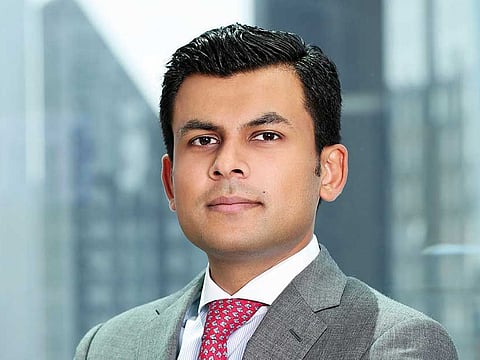Turbulence ahead for GCC’s PE industry
Institutional investors to demand greater accountability

Dubai: The recent crisis at Abraaj is likely to impact fund raising and exits from some of the regional asset classes triggering another round of slowdown in growth for the industry, according to industry insiders and experts.
The private equity (PE) industry in the GCC has been on a gradual recovery mode since the global financial crisis. While investment volumes have picked up again after a partial slowdown in 2016, with a total of $3.3 billion (Dh12.1 billion) in 2017, average deal multiples appear to be quite sustained compared to pre financial crisis levels, according to recent data from Boston Consulting Group (BCG).
Despite these positive trends, analysts say key trends indicate that corrections in the industry are inevitable.
“Several indicators — including deal multiples, leverage ratios, and the amount of dry powder (that is, uninvested capital) — are at historically high levels, and new entrants continue to flood into the market. But we believe the PE industry still has significant room to grow,” said a recent BCG report.
Data on GCC PE industry indicate that dry powder is on the rise again after a partial decline in 2016 with a total $5.3 billion, this is still about 73 per cent of pre-crisis level in 2007 at $7.2 billion.
As money continues to pour in from institutional investors, firms will have a tougher time finding deals that meet their performance criteria. Many of them will rely even more heavily on secondary buyouts, which has the effect of making value creation even more difficult.
Abraaj troubles
Clearly, with the entry of more institutional money, private equity firms are called on to adhere to better governance standards, audits and accountability. The recent troubles at Abraaj was triggered when institutional investors such as Bill & Melinda Gates Foundation and IFC, the private sector investment arm of the World Bank initiated a forensic audit on the company’s internal practices in managing the $1 billion health care fund.
“Growth magnifies inefficiencies, and as the firms grow across countries and into new asset classes, they need to adapt their processes — such as deal prioritisation, staffing, and deal governance — accordingly. Processes that may have previously been run in an informal way now require much more formal mechanisation to keep on track at scale,” said the BCG report.
Analysts say PE firms should adapt decision- making rights and determine accountabilities across the firm. In 2006 and 2007, funds scaled up very fast without adapting their operating model, which resulted in some disastrous deals made at the top of the market. To avoid these mistakes and resist the urge to deploy capital no matter what, firms will need to stay disciplined regarding decision-making processes and accountabilities.
According to BCG data, total of about 24 funds are currently fund-raising in the GCC region, with a target funds to be raised of at least $6.5 billion.
Leverage
Industry insiders say fund raising is private equity is very sensitive to news relating to the industry. “Clearly the Abraaj case is going to have a big impact on limited partners who provide money to general partners. Leverage is also going to become expensive and scarce, ultimately eroding multiples,” said the CEO of a regional private equity firm.
Although leverage is an important factor, however, some PE players think there is scope for change in strategies that do with less leverage. Historically, PE firms and investment firms have generally created value in their portfolio companies in three ways: deleveraging, multiple expansion, and operational improvements aimed at increasing revenues, margins, or both. In fact, private equity firms once used financial leverage extensively as their main tool for boosting the internal rate of return (IRR) on their portfolio companies.
“Now, as value creation has moved beyond financial engineering, operational improvement is the most frequently used lever. In particular, many PE firms and investment firms are enhancing the value of their portfolio companies through add-on acquisitions. A study of private equity by The Boston Consulting Group found that M&A is the most common approach to improving the operational value of portfolio companies, used by 91 per cent of the firms surveyed,” said Abhishek Sharma, CEO, Foundation Holdings.
Despite the recent legal and liquidity issues at Abraaj, PE industry representatives said the UAE private equity transactions continue to offer strong growth, with favourable demographics and a stable oil price that leads the demand across sectors.
“The UAE market gives investors an opportunity to diversify portfolios away from traditional US and European markets. Considering the way UAE’s economy is poised for growth in the coming year, with capital markets on an upswing, we expect many more investments and exits in the next few months,” said Sharma.



